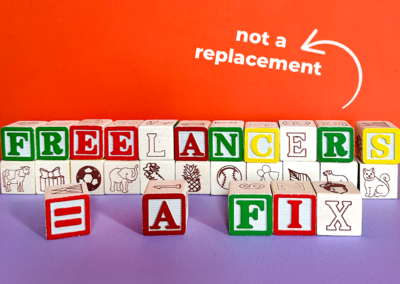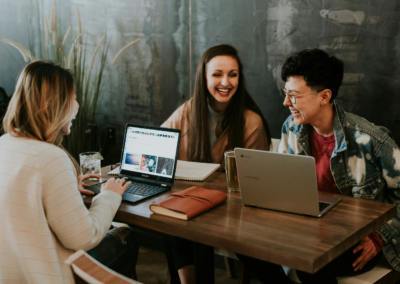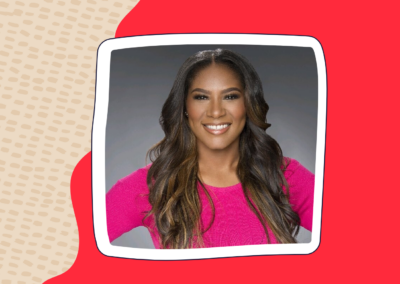Let’s walk the talk — It’s about time we had some candid conversations. The only way we’ll spark meaningful action is to inspire actionable shifts in mindset.
It’s been over a year since the pandemic started and slowly people are starting to get back to their lives, go out and see others and try to feel a sense of normalcy again.
For me, the most tragic part of the pandemic was not staying indoors or not being able to see family and friends, it was the gregarious political climate and social uprisings that highlighted the systematic inequalities and social injustices taking place nationally, and throughout history.
Black History Month, Women’s History Month, Asian American Pacific Islander (AAPI) Month and Pride Month have all recently passed, but that does not mean that we should stop celebrating, or recognizing different cultures, histories, communities and backgrounds. It should ignite us to have honest, tough conversations so that we not only continue to learn but also educate and understand the roots of who we all are in order to acknowledge and appreciate the differences around us.
I’m still sometimes called Oriental (which often refers to furniture and decorative style). I was bullied as a child and have been called all the slanty eye terms you can think of (along with the hand and facial gestures). But I know now that those that tried to hurt me or get a laugh did not know any better. No one taught them.
Here’s the truth. My closest friends don’t even know what I’ve gone through as an Asian-American or how I have felt, because most never asked, and I never volunteered to tell them. Maybe it was because I was raised to be very private and not to speak unless spoken to, because staying quiet meant you have manners. As I got older, I think my non-Asian friends thought I was just like one of them so, what was there to talk about? If it did ever come up, it was more like, “I don’t see you as Asian, I just see you as you… as Nellie.”
I know they thought it was supposed to be the “right” thing to say and they probably meant it, but the truth is, being Korean is who I am. And the negativity, hatred and violence that is happening across the Asian American community is heartbreaking because I am also an American, but more importantly, a human being. I can’t change the way I look, nor do I want to. We have to learn to celebrate who we are with each other.
However, there’s a lot of unlearning we have to do. How do we create a more equitable, unbiased and fair playing field for everyone?
1) Walk the Talk- Advancing Diversity & Inclusion Through Equity & Belonging
We can start by knowing that every single person can make a difference no matter the circumstances. If we take personal accountability, we can feel empowered to have a voice. Understanding the value, the issues, and fundamentals that might set us apart are the first steps to addressing systemic issues.
Too often we throw around ‘diversity’ and ‘inclusion’ along with ‘multicultural marketing’ without really thinking about what those terms mean, or some may roll their eyes from the so-called D&I fatigue. But they are not the same and the terms diversity and inclusion are not synonymous. At the VAB IMPACT Diversity Leadership Summit held this past June, Renetta McCann, Chief Inclusion Experience Officer at Publicis Groupe said, “When we talk about equity versus equality, definitionally equality is giving everyone the same. Equity is about giving the individuals or the populations, what they need”. We ALL have a say in how we communicate and in how we have these conversations – it’s intersectionality that we must embrace in order to start to belong.
2) Start the Conversation – Lead by Example, with Powerful Purpose
Leading by example is hard, but starting tough conversations with ourselves and then carrying them on with others, is even harder.
While I pride myself in being an Asian American, I have to admit that growing up as an Asian wasn’t easy. As a minority, I didn’t feel like I fit in and wanted to just blend in somehow. Teaching about different cultures and backgrounds needs to start when we are children, so we grow up knowing how to celebrate both differences and similarities in each other. This is equally necessary within the workplace.
We need to have conversations where we learn to understand one another, because it is the only way we will get to the next level of consciousness in our ability to connect through different backgrounds and values.
At the VAB IMPACT Diversity Leadership Summit, we discussed the need to approach unconscious bias with openness. By admitting it, unraveling it and figuring out why and how those biases formed, you begin to feel empowered and take the first step to accepting diversity.
Apolo Ohno, 8x Olympic gold medalist also encouraged having the tough conversations.”Sometimes we need to look at our own self insecurities, traumas, limiting beliefs and self-doubts and begin having deeper conversations. In that process, you as an organization will become better.”
3) Inspire Others Through Authenticity – Forging a Path to Honest and Inclusive Leadership
Being an authentic leader means accepting that you don’t have to have all of the answers. I try to always remember to be in learning mode not only in the workplace, but in every aspect of life.I don’t feel we’re ever done learning about anything, so I ask questions because I want to be questioned, too. Having a curious mind helps keep our minds open to listen, gain new understandings and in turn have empathy and be humble in accepting new learnings.
“We need to understand that great leaders don’t allow people to be treated ‘less than’” as Shelly McNamara, Chief Equity & Inclusion Officer at P&G says. Ongoing formal and informal conversations between leadership and employees are important to fostering an inclusive and open work environment. They are essential players in setting the tone to positively influence company culture, and in our personal lives.
Whether you’re just starting out in your career or have been leading an organization for years, we all need advice, perspective and actionable insights on how to succeed.
If you want to bring about real, lasting change in how diversity and inclusion are embraced across the industry, your team and within society, – we have to be an agent of that change.
Either way, we need to lean on our own and other communities to learn, accept and hear one another. Listen into other candid, honest and powerful conversations with 30+ industry leaders from the VAB IMPACT Diversity Leadership Summit.
Nellie’s Socials: LinkedIn, Twitter
Editor’s Socials – Dominque Dajer: LinkedIn, Twitter, Instagram



